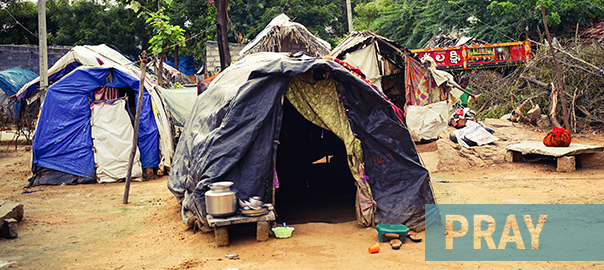Charitable giving actually increased in 2020, despite (or because of?) the global pandemic. I read it on the internet so it must be true. (Just kidding. It’s real.)*
I’m so thankful for all the families and churches I know who give faithfully, generously, sacrificially… And who have continued to give and to care for those in need in the midst of pandemic panic and an uncertain future. Their lives are a beautiful testament to God’s goodness.
Many of them—and me too—wrestle not so much with generosity but with how to give well and wisely. Obviously we want to genuinely help those we give to and not do damage along the way. But sometimes it’s not so clear what that looks like.
I used to think that the Christian mandate to care for the poor was a “no-brainer.” Unlike concepts like the Trinity and predestination vs. free will, addressing poverty (I thought) is straight forward. If someone is hungry, give them food. If someone lacks access to clean water, dig a well.
But what if someone is hungry because she happened to be born a girl, and girls are the last to eat in the family? It’s quite possible all the food I donate goes into the bellies of her well-fed father and brothers. Or at best, by providing food, I can help her to grow up into a slightly better-nourished woman who is still abused, neglected, and oppressed. I didn’t really solve the problem.
What if a community lacks clean water because the well that an NGO already built in their community broke down a decade ago and was never repaired? Another well may give a few years of clean water, but sooner or later it will break down and leave the community no better than before. I haven’t reached the heart of the issue.
What if people are locked in poverty by widespread corruption, racism, or a caste-system?
What if poverty is not the problem, but just the symptom of something much deeper?
It turns out that addressing poverty is not simple at all. Poverty is complex. It is spiritual and relational as well as physical. It’s perpetuated by unjust systems and broken worldviews.
If money and resources could solve poverty, it would be fixed already. People in the U.S. alone give tens of billions of dollars a year toward poverty alleviation.* But real transformation out of poverty is so rare it feels like an actual miracle when it happens. Human efforts aren’t enough. We need God’s intervention.
The good news is, we know for sure that poverty is not God’s will. His plan is for our flourishing. His heart breaks over every child going hungry, every widow unable to make ends meet, every “anything helps” sign. He wants to intervene. And He is able to bring breakthrough when His people pray. We’ve seen thousands of communities transformed out of poverty into flourishing. It is possible, with God’s help.
Please take five minutes right now to pray:
- That churches would find creative ways to serve and help the most vulnerable, even as some are not able to meet and many have seen a drop in giving.
- Pray that God would stir the hearts of His people to give generously and to pray continuously for those in desperate need.
- Pray that oppressive and corrupt systems will be replaced with systems that bring equality and justice for those in poverty.
- Pray for those who have lost income because of pandemic restrictions and for families who lost their primary breadwinner. Pray that God will provide for their needs and restore their ability to work and earn income.
Here’s this month’s prayer mailing with more suggestions for how to pray, especially for those who’ve been financially devastated by the pandemic.
For more on how RW understands poverty, check out our core principle: Focusing on the Vulnerable. You can also download the free “Focusing on the Vulnerable” booklet to take a deep dive into the reasons behind poverty and how to make a real difference.



Leave A Comment